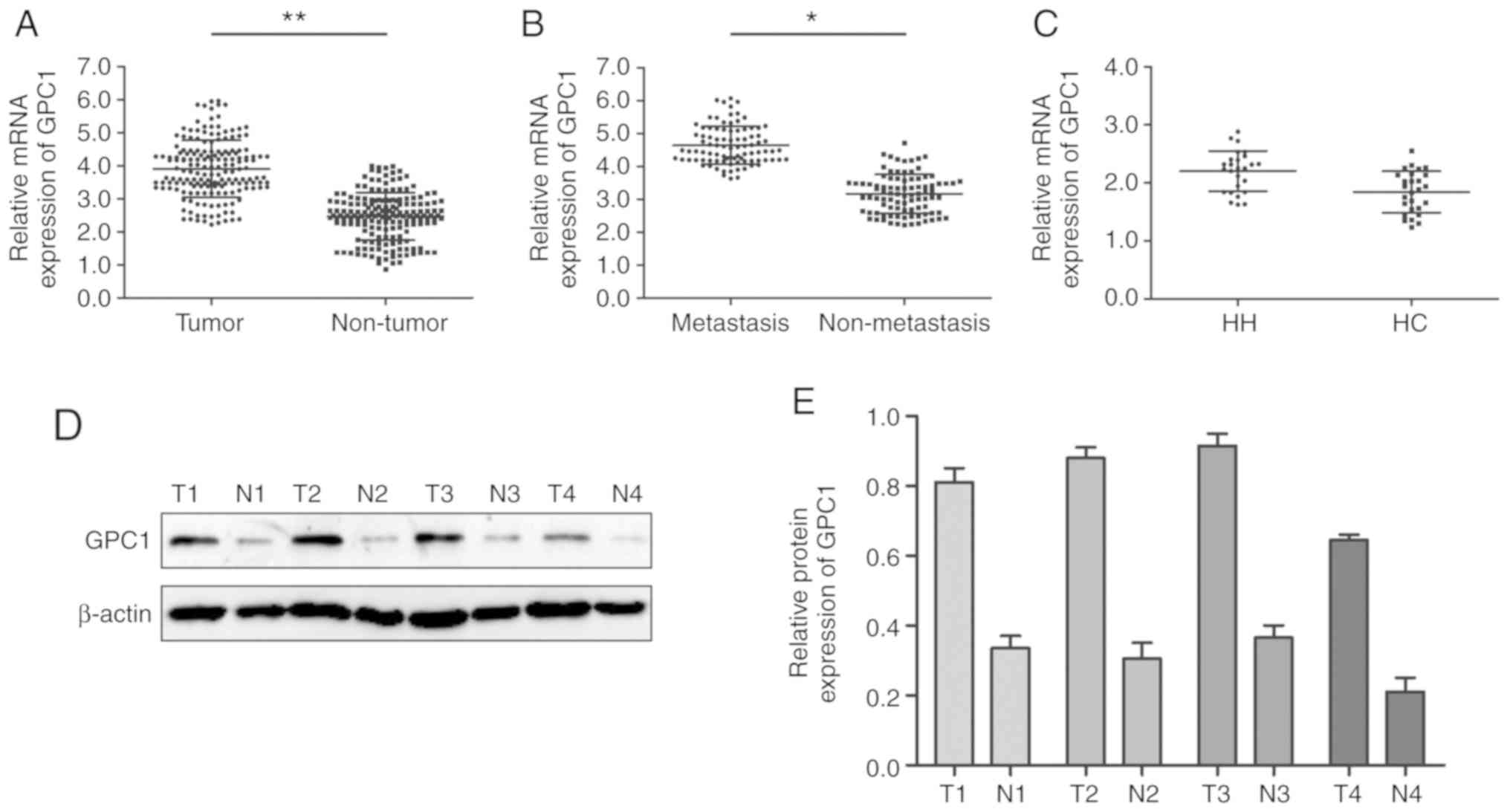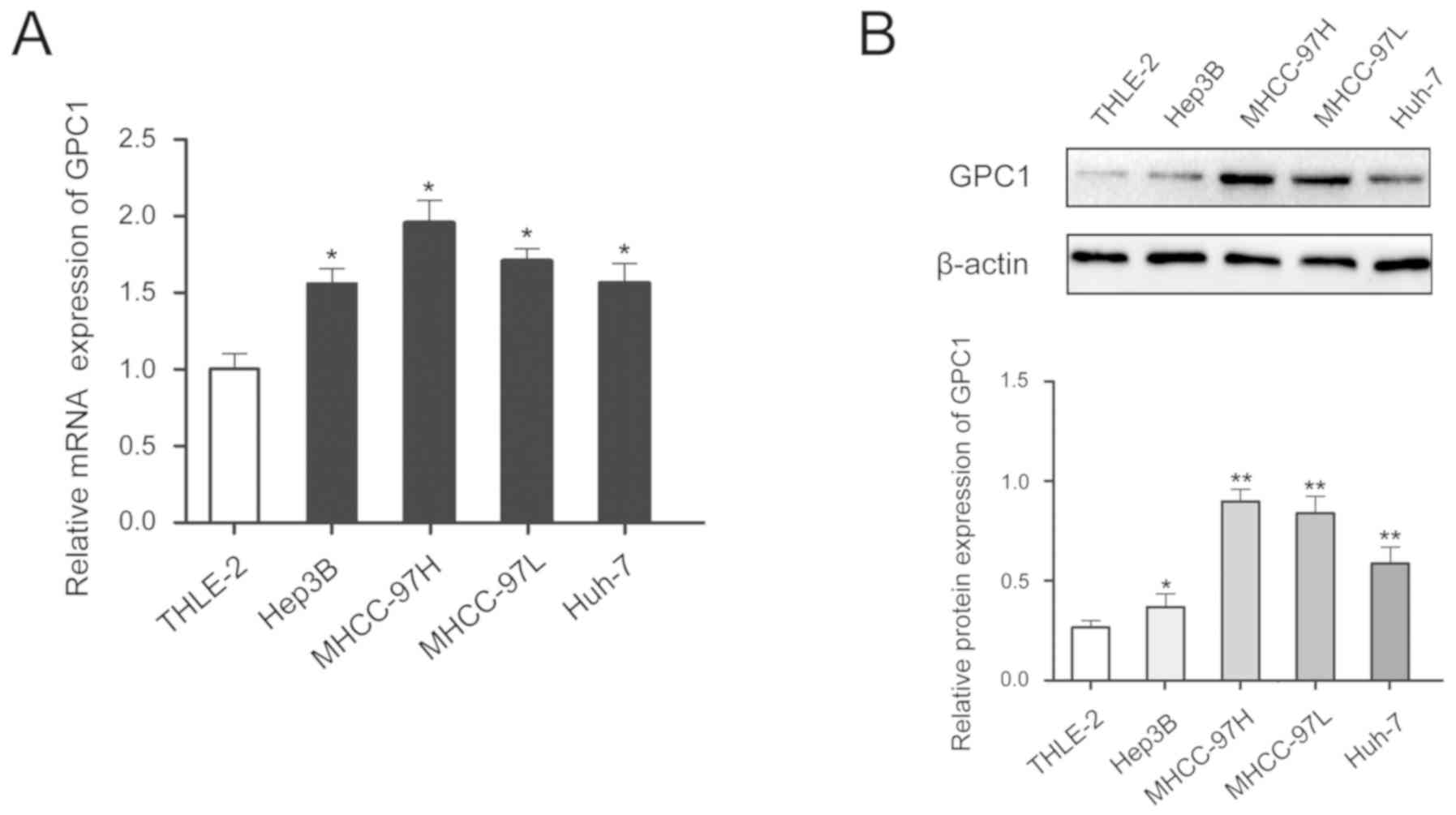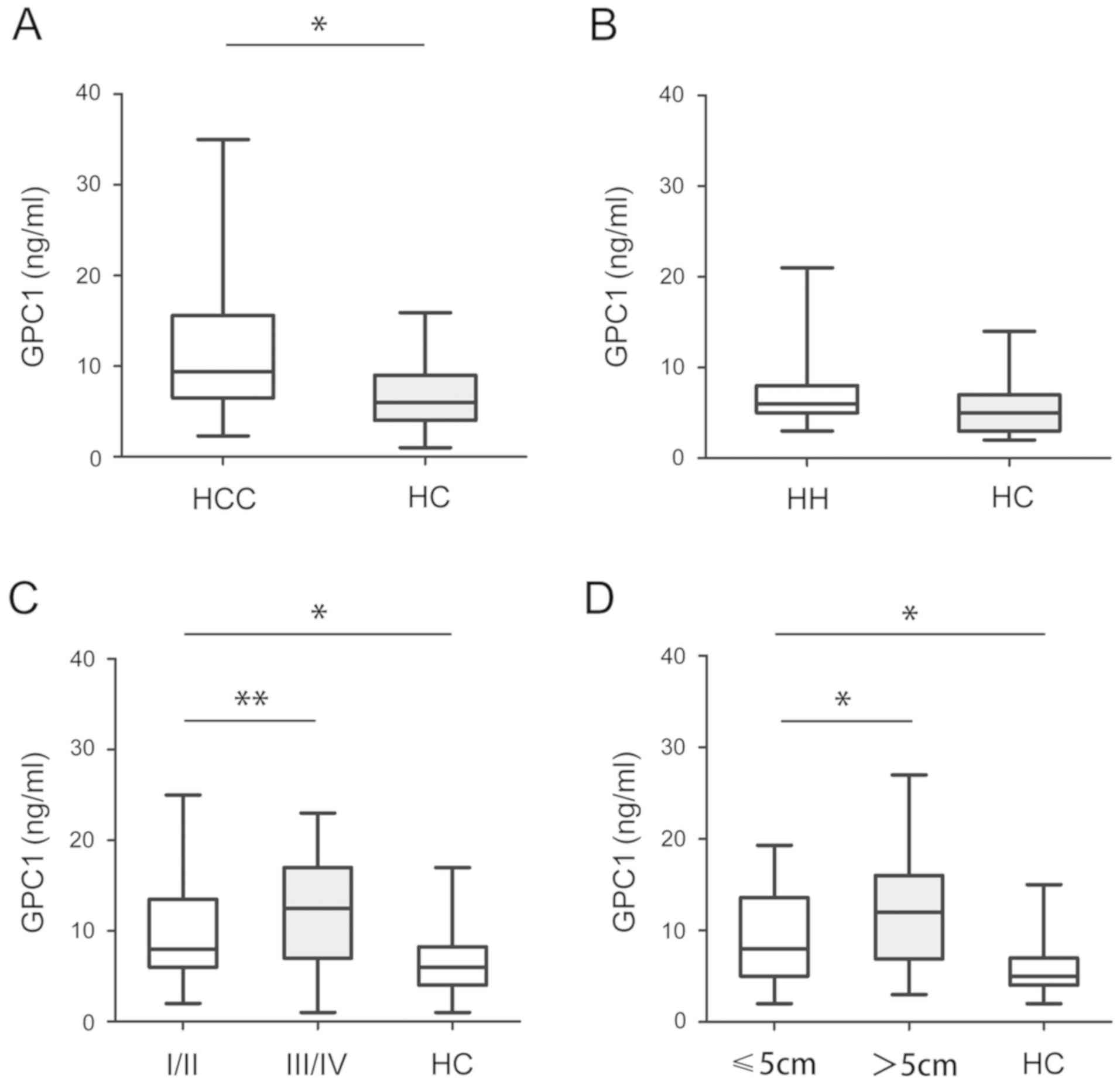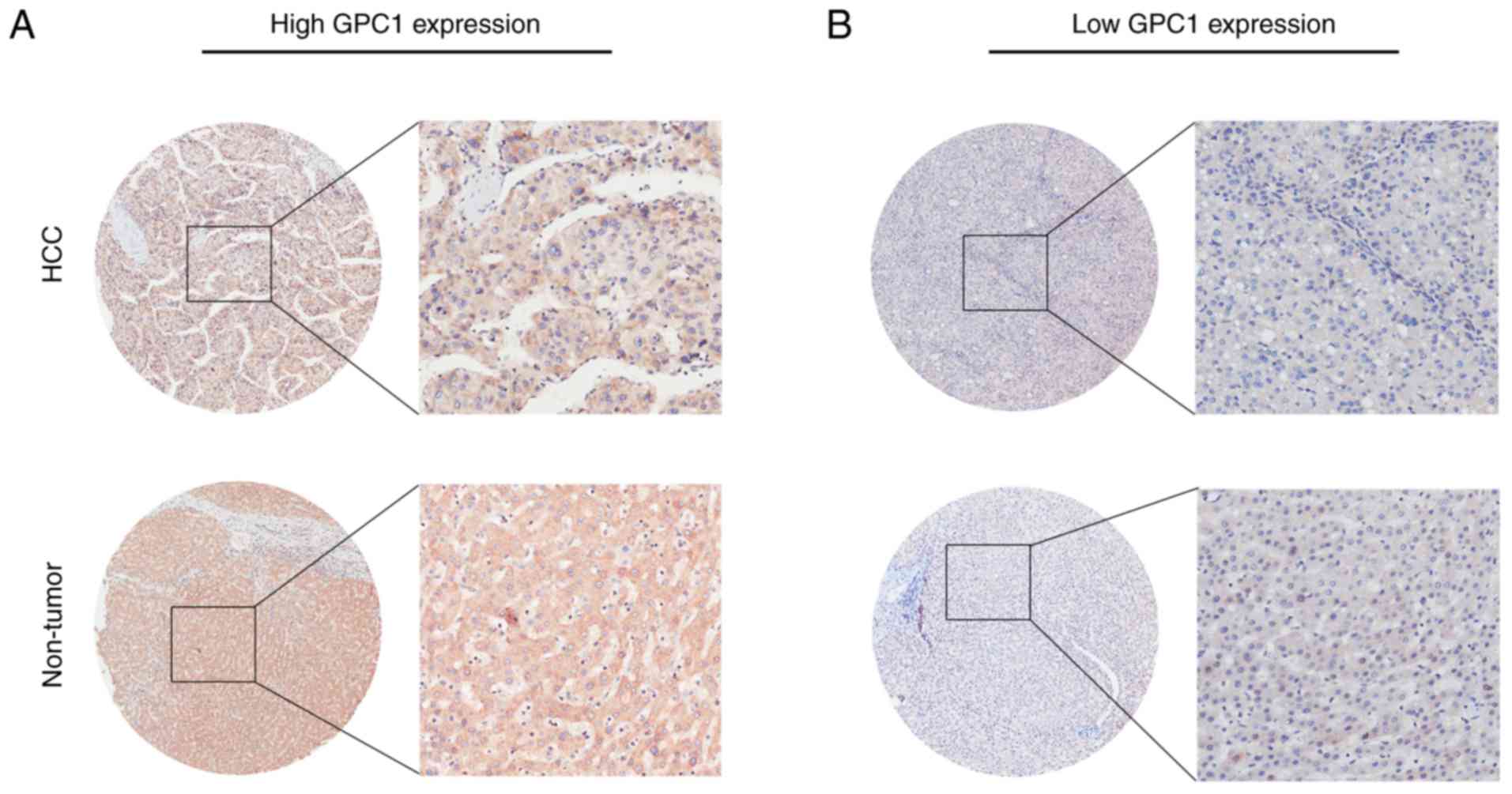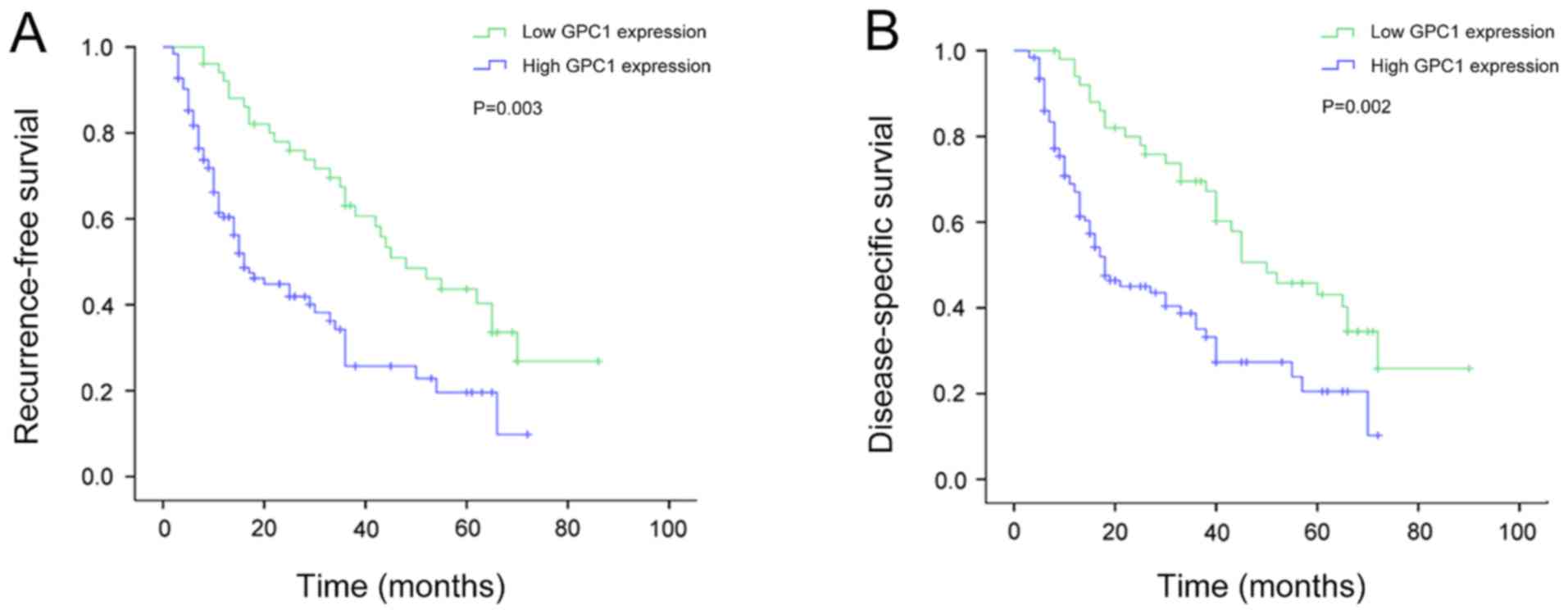|
1
|
Grandhi MS, Kim AK, Ronnekleiv-Kelly SM,
Kamel IR, Ghasebeh MA and Pawlik TM: Hepatocellular carcinoma: From
diagnosis to treatment. Surg Oncol. 25:74–85. 2016. View Article : Google Scholar : PubMed/NCBI
|
|
2
|
Chen W, Zheng R, Baade PD, Zhang S, Zeng
H, Bray F, Jemal A, Yu XQ and He J: Cancer statistics in China,
2015. CA Cancer J Clin. 66:115–132. 2016. View Article : Google Scholar : PubMed/NCBI
|
|
3
|
Wu H, Zhang W, Wu Z, Liu Y, Shi Y, Gong J,
Shen W and Liu C: miR-29c-3p regulates DNMT3B and LATS1 methylation
to inhibit tumor progression in hepatocellular carcinoma. Cell
Death Dis. 10:482019. View Article : Google Scholar : PubMed/NCBI
|
|
4
|
Ramalho M, Matos AP, AlObaidy M, Velloni
F, Altun E and Semelka RC: Magnetic resonance imaging of the
cirrhotic liver: Diagnosis of hepatocellular carcinoma and
evaluation of response to treatment-Part 1. Radiol Bras. 50:38–47.
2017. View Article : Google Scholar : PubMed/NCBI
|
|
5
|
Hara H, Takahashi T, Serada S, Fujimoto M,
Ohkawara T, Nakatsuka R, Harada E, Nishigaki T, Takahashi Y, Nojima
S, et al: Overexpression of glypican-1 implicates poor prognosis
and their chemoresistance in oesophageal squamous cell carcinoma.
Br J Cancer. 115:66–75. 2016. View Article : Google Scholar : PubMed/NCBI
|
|
6
|
Melo SA, Luecke LB, Kahlert C, Fernandez
AF, Gammon ST, Kaye J, LeBleu VS, Mittendorf EA, Weitz J, Rahbari
N, et al: Glypican-1 identifies cancer exosomes and detects early
pancreatic cancer. Nature. 523:177–182. 2015. View Article : Google Scholar : PubMed/NCBI
|
|
7
|
Truong Q, Justiniano IO, Nocon AL, Soon
JT, Wissmueller S, Campbell DH and Walsh BJ: Glypican-1 as a
biomarker for prostate cancer: Isolation and characterization. J
Cancer. 7:1002–1009. 2016. View Article : Google Scholar : PubMed/NCBI
|
|
8
|
Herreros-Villanueva M and Bujanda L:
Glypican-1 in exosomes as biomarker for early detection of
pancreatic cancer. Ann Transl Med. 4:642016.PubMed/NCBI
|
|
9
|
Zhou CY, Dong YP, Sun X, Sui X, Zhu H,
Zhao YQ, Zhang YY, Mason C, Zhu Q and Han SX: High levels of serum
glypican-1 indicate poor prognosis in pancreatic ductal
adenocarcinoma. Cancer Med. 7:5525–5533. 2018. View Article : Google Scholar : PubMed/NCBI
|
|
10
|
Livak KJ and Schmittgen TD: Analysis of
relative gene expression data using real-time quantitative PCR and
the 2(-Delta Delta C(T)) method. Methods. 25:402–408. 2001.
View Article : Google Scholar : PubMed/NCBI
|
|
11
|
Siegel RL, Miller KD and Jemal A: Cancer
statistics, 2017. CA Cancer J Clin. 67:7–30. 2017. View Article : Google Scholar : PubMed/NCBI
|
|
12
|
Moon S, Yeon Park S and Woo Park H:
Regulation of the Hippo pathway in cancer biology. Cell Mol Life
Sci. 75:2303–2319. 2018. View Article : Google Scholar : PubMed/NCBI
|
|
13
|
Zahn LM: Effects of the tumor
microenvironment. Science. 355:1386–1388. 2017. View Article : Google Scholar
|
|
14
|
Willatt J, Ruma JA, Azar SF, Dasika NL and
Syed F: Imaging of hepatocellular carcinoma and image guided
therapies-how we do it. Cancer Imaging. 17:92017. View Article : Google Scholar : PubMed/NCBI
|
|
15
|
Cui S, Leyva-Vega M, Tsai EA, EauClaire
SF, Glessner JT, Hakonarson H, Devoto M, Haber BA, Spinner NB and
Matthews RP: Evidence from human and zebrafish that GPC1 is a
biliary atresia susceptibility gene. Gastroenterology.
144:1107–1115.e3. 2013. View Article : Google Scholar : PubMed/NCBI
|
|
16
|
Qiao D, Yang X, Meyer K and Friedl A:
Glypican-1 regulates anaphase promoting complex/cyclosome
substrates and cell cycle progression in endothelial cells. Mol
Biol Cell. 19:2789–2801. 2008. View Article : Google Scholar : PubMed/NCBI
|
|
17
|
Zeng Y and Liu J: Role of glypican-1 in
endothelial NOS activation under various steady shear stress
magnitudes. Exp Cell Res. 348:184–189. 2016. View Article : Google Scholar : PubMed/NCBI
|
|
18
|
Ebong EE, Lopez-Quintero SV, Rizzo V,
Spray DC and Tarbell JM: Shear-induced endothelial NOS activation
and remodeling via heparan sulfate, glypican-1, and syndecan-1.
Integr Biol (Camb). 6:338–347. 2014. View Article : Google Scholar : PubMed/NCBI
|
|
19
|
Kayed H, Kleeff J, Keleg S, Jiang X,
Penzel R, Giese T, Zentgraf H, Büchler MW, Korc M and Friess H:
Correlation of glypican-1 expression with TGF-beta, BMP, and
activin receptors in pancreatic ductal adenocarcinoma. Int J Oncol.
29:1139–1148. 2006.PubMed/NCBI
|
|
20
|
Lund ME, Campbell DH and Walsh BJ: The
role of glypican-1 in the tumour microenvironment. Adv Exp Med
Biol. 1245:163–176. 2020. View Article : Google Scholar : PubMed/NCBI
|
|
21
|
Wilson NH and Stoeckli ET: Sonic hedgehog
regulates its own receptor on postcrossing commissural axons in a
glypican1-dependent manner. Neuron. 79:478–491. 2013. View Article : Google Scholar : PubMed/NCBI
|
|
22
|
Kleeff J, Ishiwata T, Kumbasar A, Friess
H, Büchler MW, Lander AD and Korc M: The cell-surface heparan
sulfate proteoglycan glypican-1 regulates growth factor action in
pancreatic carcinoma cells and is overexpressed in human pancreatic
cancer. J Clin Invest. 102:1662–1673. 1998. View Article : Google Scholar : PubMed/NCBI
|
|
23
|
Kleeff J, Wildi S, Kumbasar A, Friess H,
Lander AD and Korc M: Stable transfection of a glypican-1 antisense
construct decreases tumorigenicity in PANC-1 pancreatic carcinoma
cells. Pancreas. 19:281–288. 1999. View Article : Google Scholar : PubMed/NCBI
|
|
24
|
Ding K, Lopez-Burks M, Sánchez-Duran JA,
Korc M and Lander AD: Growth factor-induced shedding of syndecan-1
confers glypican-1 dependence on mitogenic responses of cancer
cells. J Cell Biol. 171:729–738. 2005. View Article : Google Scholar : PubMed/NCBI
|
|
25
|
Lu H, Niu F, Liu F, Gao J, Sun Y and Zhao
X: Elevated glypican-1 expression is associated with an unfavorable
prognosis in pancreatic ductal adenocarcinoma. Cancer Med.
6:1181–1191. 2017. View Article : Google Scholar : PubMed/NCBI
|
|
26
|
Weber C: Biomarkers: The challenge to find
biomarkers for the early detection of pancreatic cancer. Nat Rev
Gastroenterol Hepatol. 12:4272015. View Article : Google Scholar : PubMed/NCBI
|
|
27
|
Duan L, Hu XQ, Feng DY, Lei SY and Hu GH:
GPC-1 may serve as a predictor of perineural invasion and a
prognosticator of survival in pancreatic cancer. Asian J Surg.
36:7–12. 2013. View Article : Google Scholar : PubMed/NCBI
|
|
28
|
Witkiewicz AK, McMillan EA, Balaji U, Baek
G, Lin WC, Mansour J, Mollaee M, Wagner KU, Koduru P, Yopp A, et
al: Whole-exome sequencing of pancreatic cancer defines genetic
diversity and therapeutic targets. Nat Commun. 6:67442015.
View Article : Google Scholar : PubMed/NCBI
|
|
29
|
Edge SB, Byrd DR, Compton CC, Fritz AG,
Greene FL and Trotti A: AJCC Cancer Staging Manual. 7th. Springer;
New York, NY: 2010
|















